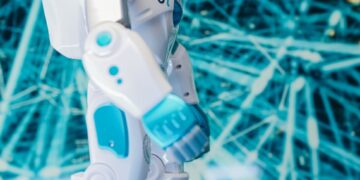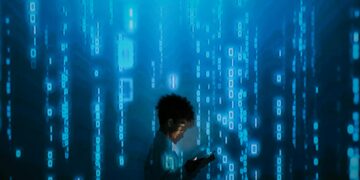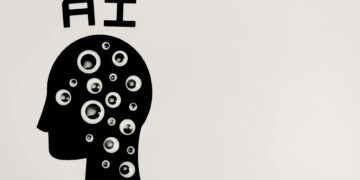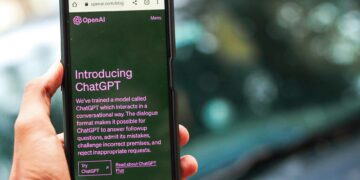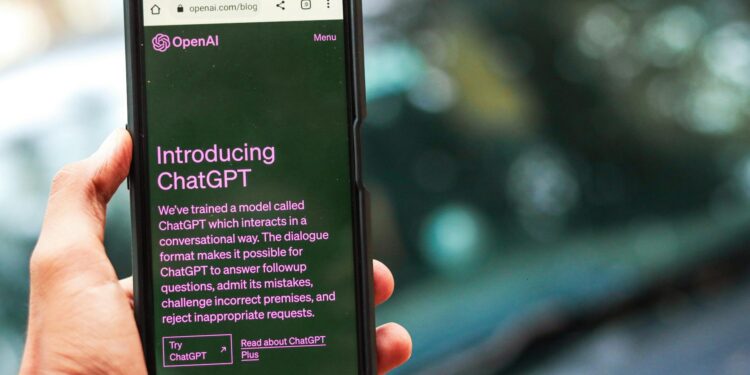The landscape of professional and creative endeavors is undergoing a profound transformation, driven by the rapid, explosive advancements in generative artificial intelligence. Far beyond merely offering new software features or incremental efficiency gains, generative AI is fundamentally redefining the very essence of creativity, the benchmarks of productivity, and the foundational structure of work for every individual and industry. This paradigm shift is not just about automating repetitive tasks; it’s about augmenting human potential, fostering unprecedented collaboration between humans and machines, and unlocking entirely new avenues for innovation. This article will delve into how these powerful AI models are rewriting the rules, reshaping skill sets, and charting an exciting, albeit challenging, course for the future of professional engagement.
The genesis of augmented creativity
Generative AI has shattered traditional barriers to creative output, moving beyond simple automation to become an active partner in the creative process. Imagine a world where a writer struggling with plot points can receive nuanced suggestions for character arcs or story continuations, or where a graphic designer can generate dozens of design variations in seconds from a single prompt. This is the reality today. Tools capable of generating text, images, music, video, and even code are empowering individuals to explore ideas and manifest concepts with unparalleled speed and breadth. This doesn’t diminish human creativity; instead, it amplifies it, allowing creators to focus on the strategic vision, emotional depth, and unique human insights that truly differentiate their work. It democratizes access to sophisticated creative tools, enabling a wider array of voices to contribute and innovate across various artistic and commercial fields, transforming a solitary act into a collaborative journey with an intelligent assistant.
Supercharging productivity for all
The impact of generative AI on productivity is equally revolutionary, extending far beyond the traditional confines of efficiency. It’s about enabling individuals to achieve more, better, and faster, across virtually every professional domain. From automating the drafting of emails and reports to synthesizing vast amounts of research data, AI tools are taking over time-consuming, cognitive tasks that once demanded significant human effort. This frees up invaluable human capital, allowing professionals to dedicate their focus to complex problem-solving, strategic thinking, and interpersonal engagement, which remain inherently human strengths. Consider the impact on software development, where AI can write boilerplate code, debug errors, or translate between programming languages, drastically accelerating development cycles. Similarly, in marketing, personalized content can be generated at scale, tailoring messages to individual customer segments with previously unimaginable precision. The following table illustrates potential productivity gains in common professional tasks:
| Task | Traditional Time (Approx.) | Time with Generative AI (Approx.) | Productivity Gain |
|---|---|---|---|
| Drafting a marketing campaign brief | 2 hours | 15 minutes | 87.5% |
| Summarizing 5 research papers | 4 hours | 30 minutes | 87.5% |
| Generating 10 social media posts | 1 hour | 5 minutes | 91.7% |
| Creating initial website wireframes | 3 hours | 20 minutes | 88.9% |
Reshaping roles and the skills imperative
As generative AI becomes embedded in daily workflows, the nature of work itself is shifting, leading to the evolution of existing job roles and the emergence of entirely new ones. The most significant shift is arguably towards a “human in the loop” model, where human oversight, critical judgment, and strategic direction become paramount. Roles that once focused on repetitive execution are now transforming to emphasize prompt engineering, AI tool management, and the ethical evaluation of AI-generated output. We are seeing the rise of positions like AI content strategists, AI ethicists, and AI whisperers—individuals skilled in crafting precise prompts to elicit optimal results from AI models. For everyone, regardless of their profession, developing AI literacy—understanding how these tools work, their capabilities, and their limitations—is becoming a fundamental skill. Adaptability, critical thinking, problem-solving, and emotional intelligence are also increasingly valued, as these are the uniquely human attributes that AI cannot replicate, and which become essential for navigating a hyper-augmented professional landscape.
Ethical considerations and the human touch
While the potential of generative AI is immense, its widespread adoption also brings forth critical ethical considerations that must be actively addressed. Issues such as algorithmic bias, intellectual property rights, the potential for misinformation, and job displacement require careful navigation. Ensuring fair and transparent AI systems, establishing clear guidelines for ownership of AI-generated content, and mitigating the social impact of automation are paramount. Furthermore, it is crucial to remember that generative AI is a powerful tool, not a replacement for fundamental human capabilities. The human touch—empathy, intuition, critical discernment, and the ability to imbue work with genuine purpose and emotional resonance—remains irreplaceable. AI excels at generating variations, synthesizing information, and automating processes, but it is human beings who provide the ultimate vision, ethical framework, and creative intent. Fostering a future where AI serves to enhance human endeavors, rather than diminish them, requires deliberate ethical consideration and a steadfast commitment to human-centric design and application.
The advent of generative AI marks a watershed moment, fundamentally redesigning the blueprints of creativity, productivity, and the future of work. We are witnessing a profound shift from a world where tools merely assist human effort to one where intelligent systems actively co-create, optimize, and innovate alongside us. This revolution is not confined to tech giants or specialized fields; its transformative ripples are reaching every profession, empowering individuals to achieve previously unimaginable feats of creation and efficiency. The core takeaway is clear: generative AI is not just another technological update; it is a catalyst for re-evaluating what it means to be a creator, a professional, and a contributor in the modern era. Embracing this new paradigm with a focus on ethical development, continuous learning, and strategic human-AI collaboration will be crucial for unlocking its full potential and shaping a future of work that is more innovative, productive, and ultimately, more human-centric for everyone.

